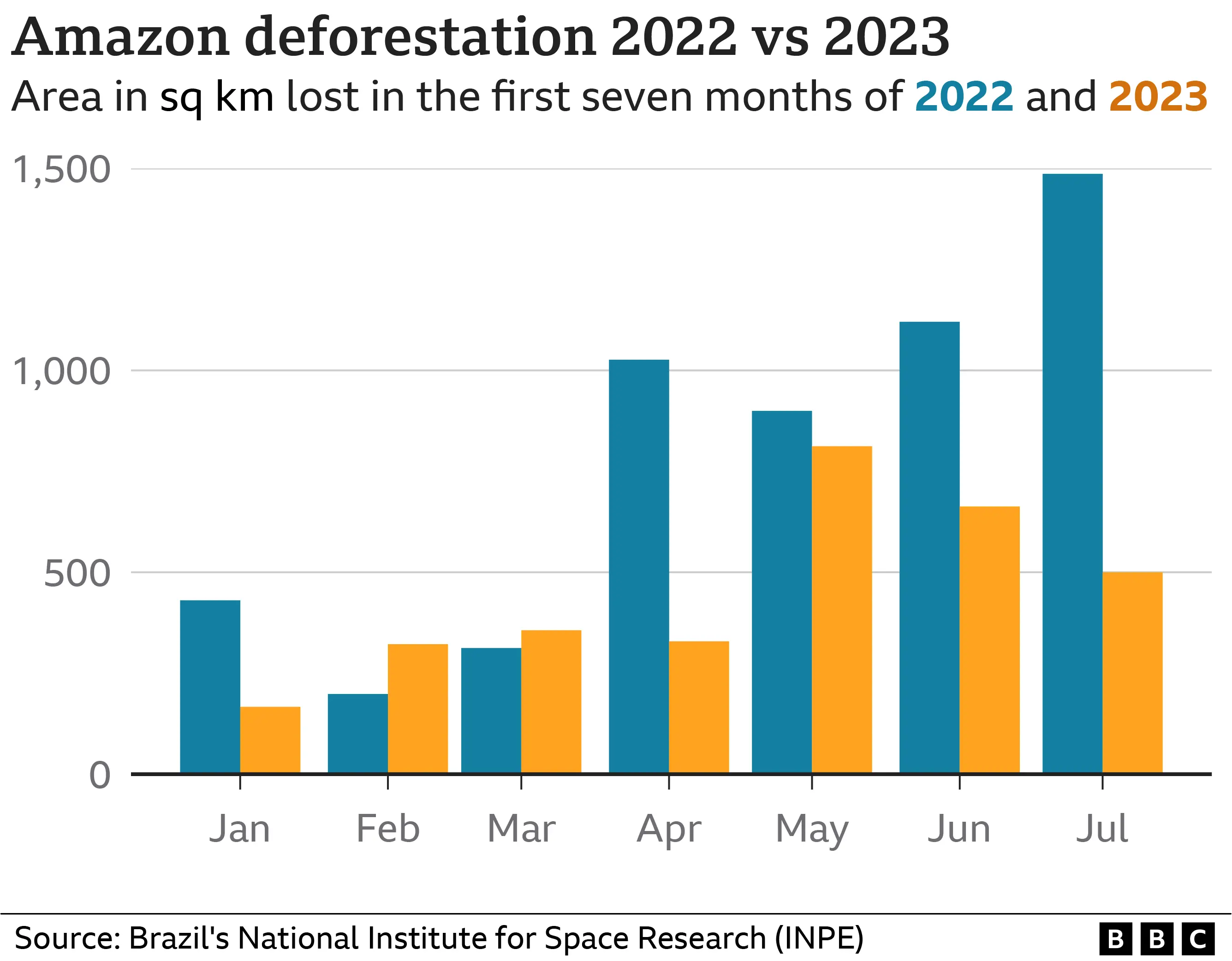Amazon deal lacks concrete measures, say climate activists
 AFP
AFPThe eight countries that share the Amazon basin have fallen short of an agreed goal to end deforestation.
Delegates from the countries are meeting in the Brazilian city of Belém for a two-day summit on the issue.
A joint declaration on Tuesday created an alliance to combat deforestation, but left each country to pursue its own conservation goals.
Climate activists said the deal lacked concrete measures at a time "when the planet is melting".
"Temperature records are broken every day, it's not possible that under those circumstances, the eight presidents of the Amazon nations can't include a line in the declaration stating, in bold letters, that deforestation needs to be zero, that it won't be tolerated any more," Márcio Astrini of the Climate Observatory group said.
Around 60% of the Amazon, the largest rainforest in the world, lies in Brazil. The other countries represented at the gathering are Bolivia, Colombia, Ecuador, Guyana, Peru, Suriname and Venezuela.

Preserving the Amazon is a central part of efforts to tackle climate change and ahead of the summit, its host, Brazilian President Luiz Inácio Lula da Silva, had called for a common goal of ending deforestation by 2030.
Brazil has already adopted the policy but hopes for it to be adopted jointly by all the eight nations gathered in Belém were dashed on Tuesday.
Mr Astrini said the declaration lacked "something more forceful".
Haug Larsen of the Rainforest Foundation Norway also bemoaned the fact that a commitment to zero deforestation, the "guiding star for the agreement", had not been achieved.
But he welcomed an agreement by the eight nations to work together to combat illegal activities in the Amazon, which he said had been allowed to "rage freely", particularly in the border areas.
He said concrete plans had been made to co-ordinate air space surveillance and exchange information to combat illegal mining and logging.
If properly implemented, the agreement would be "a giant leap in the right direction", he concluded.
Brazil's President Lula said in his opening speech that action had "never been so urgent".
"The challenges of our era, and the opportunities arising from them, demand we act in unison".
Deforestation in Brazil has fallen dramatically since Lula won the presidency from predecessor Jair Bolsonaro, who favoured development over conservation, but thousands of square kilometres continue to be lost each year.

The joint statement, named the Belém declaration, said the new alliance would aim to "prevent the Amazon from reaching a point of no return".
It also included commitments to enhance co-operation on issues like water management, health, sustainable development and common negotiating positions at global climate summits.
But there have been differences in opinion in some areas.
Colombia's President, Gustavo Petro, for example, wants other countries to match his pledge to ban new oil exploration, while Brazil is considering exploring new areas at the mouth of the Amazon river.
Despite the differences, the gathering has undoubtedly given this region a voice when it comes to combatting climate change, and is being viewed as a precursor to the 2025 UN Climate Change conference, which will also be held in Belém.
The summit opened on the same day that the European Union's climate change panel confirmed that July had been the hottest month on record globally.
The billions of trees that make up the Amazon hold vast amounts of carbon, accumulated over centuries, and every year their leaves continue to absorb carbon dioxide that would otherwise remain in the atmosphere and contribute to the rise in global temperatures.
The world has already warmed by about 1.1C since the industrial era began and temperatures will keep rising unless governments around the world make steep cuts to emissions.